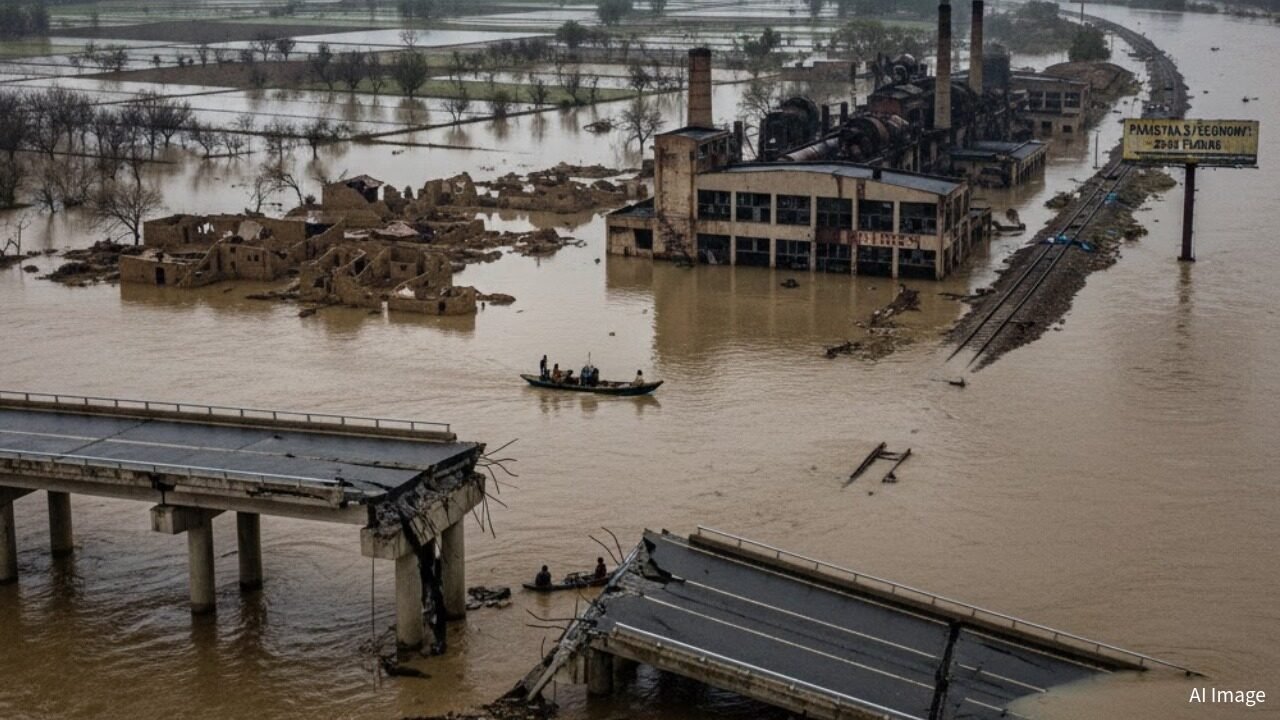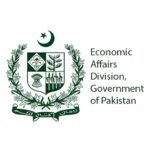By Abdul Ghani
The 2025 floods have put a huge strain on Pakistan’s economy. Exports are down, imports are up, and pressure is building on foreign exchange reserves, according to the government’s Preliminary Assessment of Flood Damages Report.
The Ministry of Planning, Development, and Special Initiatives warned that the floods would worsen Pakistan’s trade deficit in FY2026.
With crops, livestock, and infrastructure heavily damaged, the country faces reduced export earnings and higher import costs. This combination is expected to increase pressure on Pakistan’s balance of payments.
For example, Pakistan exported 5.8 million tons of rice in FY2025, earning $3.35 billion, but the floods destroyed much of the rice crop. The projected production for FY2026 was 9.5 million tons, but now it’s expected to fall between 8.3 and 8.9 million tons.
This means the country’s exportable surplus will shrink by 1.2 million tons, reducing rice export earnings by about $450 million.
More Than Just Rice
The damage goes beyond rice. Crops like cotton, sugarcane, and maize were also affected, which will impact industries like textiles and food processing. Power outages and transportation delays have further slowed industrial shipments.
“The floods have reduced export capacity and increased logistics costs, hurting Pakistan’s competitiveness,” the report explained.
Rising Import Costs
At the same time, Pakistan’s imports are increasing. The country needs to bring in more raw cotton for its textile industry, wheat, and pulses for food security, and construction materials for rebuilding efforts.
These extra imports, combined with falling exports, are expected to make the trade deficit even bigger in the current fiscal year.
Challenges to Foreign Exchange Reserves
The report also warns that the country’s foreign exchange reserves, already under pressure from global price changes, could face more strain if exports continue to fall. To manage the situation, Pakistan will need a two-step strategy: short-term stabilization and long-term export diversification.
Inflation and Cost of Imports
The report points out that inflation, driven by higher food import costs and transport expenses, could reduce Pakistan’s trade competitiveness even more. Delayed sowing of winter crops and shrinking cotton and rice supplies could raise domestic prices and reduce export profits.
With global food markets tightening because of extreme weather, Pakistan might have to pay more for essentials like wheat and pulses. The report suggests Pakistan explore concessional import deals with friendly nations and international financial institutions to prevent financial strain.
Long-Term Solutions Needed
In the long term, the Ministry recommends that Pakistan reduce its reliance on climate-sensitive crops and diversify its exports. “Shifting exports to IT services, engineering goods, and processed food will help protect the economy from future disasters,” the report states.
It also suggests developing crop insurance and disaster-financing systems to protect farmers and exporters from flood and drought losses.
The Link Between Climate and Trade
The 2025 floods have made it clear how closely Pakistan’s economy depends on its agricultural sector. “This disaster shows the connection between climate resilience and trade sustainability,” the report says.
Unless Pakistan’s agricultural and industrial sectors are made more climate-resistant, the country will remain vulnerable to economic shocks.
The Ministry reiterated that the government is committed to rebuilding export capacity through climate-smart infrastructure, better logistics, and international cooperation. “Pakistan’s recovery depends not only on its resilience but also on maintaining confidence in global markets,” the report concluded.
Balancing Reconstruction with Fiscal Discipline
With flood damages estimated at Rs822 billion, Pakistan’s policymakers are now focusing on balancing reconstruction spending with fiscal discipline. “Maintaining external stability during recovery is key to restoring investor confidence and supporting future growth,” the document said.
The Ministry is calling for strategic partnerships with development banks and other international lenders to help fund the recovery.
Author Profile
-
Abdul Ghani is a sharp analyst focused on Pakistan's industrial transformation. His reporting reveals the textile sector's pivot from basic cotton to high-growth value-added apparel.
Ghani's work underscores the triumph of knitwear and garments in boosting exports, while warning policymakers to tackle energy costs to secure long-term global competitiveness.





